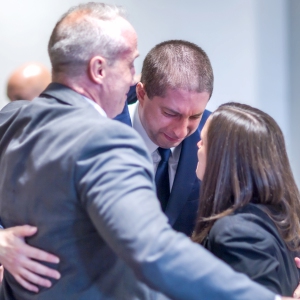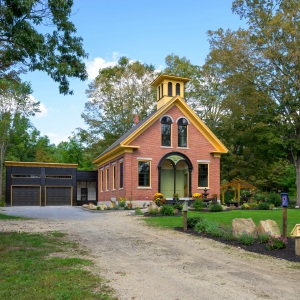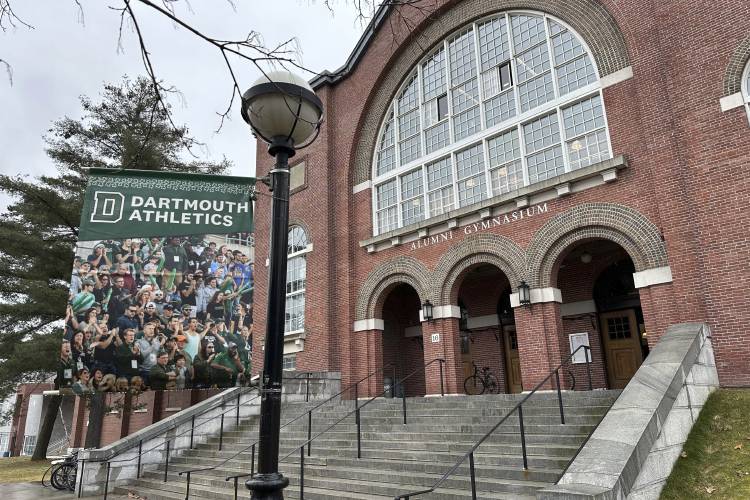Opinion: Hanover hoops: Dartmouth College and basketball unions
| Published: 04-05-2024 6:00 AM |
State Representative Mike Moffett (R-Loudon) was a Sports Management professor for Plymouth State University and NHTI-Concord. He currently chairs the House Committee on State-Federal Relations and Veterans Affairs.
A 2014 court case ruled that the NCAA violated antitrust laws by prohibiting college athletes from commercially cashing in on their sports skills, the way pro athletes have long done. The NCAA was ordered to pay plaintiffs and attorneys over $42 million.
If musicians playing in a state university band could market their music skills and earn endorsement income, then why not athletes playing on state university’s football team?
The court case opened a door for college “student-athletes” to empower themselves. Athletes receiving sports scholarships could plausibly claim to be paid employees.
Inevitably there would be attempts by players to organize and unionize. But who’d have expected that Dartmouth College men’s basketball players would be the first to try to do so?
An Associated Press piece datelined “Hanover, N.H.” reported that in February a regional director of the National Labor Relations Board ruled that Dartmouth basketball players were employees, clearing the way for them to vote to unionize. The players then voted 13-2 to join the Service Employees International Union Local 560.
Another New Hampshire first. A college basketball union.
Solidarity, ahoy!
Article continues after...
Yesterday's Most Read Articles
 Bill to allow ‘no fault’ evictions makes it to governor’s desk
Bill to allow ‘no fault’ evictions makes it to governor’s desk
 ‘He’s coming home’: Jury acquits former prison guard Matthew Millar in murder trial
‘He’s coming home’: Jury acquits former prison guard Matthew Millar in murder trial
 Look, up in the sky! It’s… an Airstream trailer?
Look, up in the sky! It’s… an Airstream trailer?
 Around Concord: Living in an 1856 schoolhouse is (mostly) delightful
Around Concord: Living in an 1856 schoolhouse is (mostly) delightful
 Slots and no bet limits: State budget shakes up New Hampshire’s casino landscape
Slots and no bet limits: State budget shakes up New Hampshire’s casino landscape
 ‘Deep flavor’ – New restaurant in downtown Concord offers creative spin on comfort food and cocktails
‘Deep flavor’ – New restaurant in downtown Concord offers creative spin on comfort food and cocktails
But the normally “progressive” Dartmouth administration balked. For one thing, these players supposedly aren’t receiving basketball scholarships, in accordance with Ivy League custom, policy, and tradition.
“Given Dartmouth’s decades-long commitment to athletics as an extension of our academic mission, we believe the regional director has made an extraordinary mistake in finding these students are employees,” the college claimed in a statement, calling the players “students whose educational program includes athletics.”
Dartmouth asked for a review of the NLRB regional director’s decision by the full board.
“From a procedural standpoint, if the full NLRB refuses to overturn the regional director’s decision, Dartmouth’s only remaining option to challenge this legal error is to engage in a technical refusal to bargain, an unprecedented step in our long history of labor negotiations,” the school stated. “This will likely result in SEIU Local 560 filing an unfair labor practice charge with the NLRB, which we would appeal. This is the only lever Dartmouth has to get this matter reviewed by a federal court.”
Is American labor pioneer Samuel Gompers rolling over in his grave?
If the courts uphold the NLRB regional director’s decision, then it will be very interesting to see how this plays out. What other colleges will follow suit? If players seeking to unionize get cut from teams or see reduced playing time, stand by for lawsuits citing unfair labor policies. What if coaches don’t treat all union members “equitably?” What if there is a Wildcat strike? (Yes, I’m looking at UNH, which does award hoop scholarships.)
More work and more money for lawyers.
The Dartmouth story is an interesting subplot to college basketball’s March Madness. Or April Madness.
Dartmouth actually has played in two NCAA championship games. Then known as the Indians, the Dartmouth hoopsters lost to Stanford and Utah in the 1942 and 1944 finals respectively.
In the 1950s, Rudy Larusso starred for Dartmouth in Hanover, before going on to become an NBA all-star with the L.A. Lakers.
But Dartmouth’s hoop fortunes have since waned.
This past season saw Hanover’s aspiring labor pioneers finish last in the Ivy League with an overall record of 6-21. Unions do have a reputation (fairly or not) of sometimes stifling initiative and achievement.
Perhaps the Big Green hoopsters will fare better in the law courts as opposed to the basketball courts.
Solidarity, ahoy!









 Opinion: What Coolidge’s century-old decision can teach us today
Opinion: What Coolidge’s century-old decision can teach us today Opinion: The art of diplomacy
Opinion: The art of diplomacy Opinion: After Roe: Three years of resistance, care and community
Opinion: After Roe: Three years of resistance, care and community Opinion: Iran and Gaza: A U.S. foreign policy of barbarism
Opinion: Iran and Gaza: A U.S. foreign policy of barbarism
